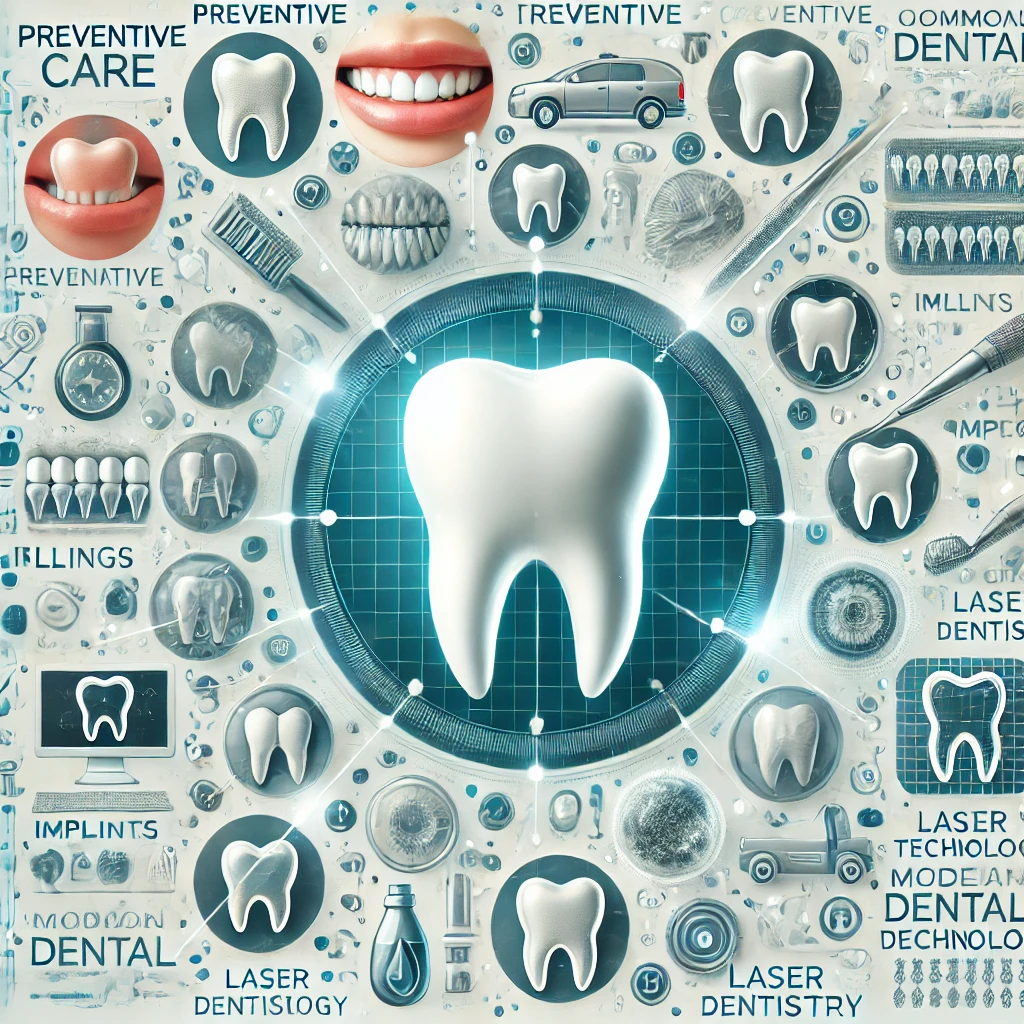(newssyc.in/category/dental) Dental care is an essential aspect of overall health, often overlooked until problems arise. Proper oral hygiene and regular dental check-ups can prevent most dental issues. This article provides an in-depth look into the various aspects of dental care, focusing on preventive measures, treatments, and advancements in the field.
2. Importance of Dental Hygiene
(newssyc.in/category/dental) Maintaining proper dental hygiene is the foundation of good oral health. Daily brushing, flossing, and using mouthwash reduce the risk of cavities, gum disease, and bad breath. Developing these habits early is key to preventing long-term dental problems.
3. Common Dental Issues
(newssyc.in/category/dental) Some of the most common dental issues include tooth decay, gum disease, and tooth sensitivity. These problems are often caused by poor oral hygiene, sugary diets, or genetics. Identifying these issues early on through regular dental visits can prevent further complications.
4. Preventive Dental Care
(newssyc.in/category/dental) Preventive dental care focuses on maintaining healthy teeth and gums. Regular check-ups, cleanings, and fluoride treatments are critical. Dentists can detect early signs of decay or gum disease and provide treatments like sealants to protect the teeth.
5. The Role of Diet in Dental Health
(newssyc.in/category/dental) Diet plays a significant role in oral health. Sugary foods and drinks are the primary contributors to tooth decay, while a diet rich in calcium and phosphorous strengthens tooth enamel. Drinking water, especially fluoridated water, helps in maintaining a healthy mouth.
6. Understanding Tooth Decay
(newssyc.in/category/dental) Tooth decay occurs when plaque, a sticky film of bacteria, builds up on the teeth. When sugars from food and drinks mix with plaque, it produces acids that attack tooth enamel. If left untreated, decay can lead to cavities, tooth loss, and other complications.
7. Gum Disease: Causes and Prevention
(newssyc.in/category/dental) Gum disease, or periodontal disease, starts as gingivitis and can progress to more severe stages if untreated. It occurs when plaque hardens into tartar and causes inflammation of the gums. Regular cleanings and proper brushing techniques are essential to preventing gum disease.
8. The Role of Fluoride in Dental Care
(newssyc.in/category/dental) Fluoride is a natural mineral that helps strengthen tooth enamel and prevent decay. Many toothpaste brands and public water supplies contain fluoride, which has been proven to reduce cavities significantly. Dentists may also offer fluoride treatments for those at higher risk of tooth decay.
9. Dental Check-Ups: What to Expect
(newssyc.in/category/dental) A dental check-up typically includes an examination of your teeth, gums, and mouth, followed by a professional cleaning. Dentists may use X-rays to detect hidden issues such as cavities or impacted teeth. Routine visits every six months are recommended for optimal dental health.
10. Professional Teeth Cleaning
(newssyc.in/category/dental) Professional teeth cleaning, also known as prophylaxis, involves removing plaque and tartar that regular brushing cannot reach. This procedure reduces the risk of gum disease, tooth decay, and bad breath, while also polishing the teeth for a brighter smile.
11. Cavity Treatments: Fillings and Beyond
(newssyc.in/category/dental) If a cavity is detected, dentists will usually treat it with a filling. Common materials used for fillings include composite resin, amalgam, gold, and porcelain. In more severe cases, treatments like crowns or root canals may be necessary to restore the tooth.
12. Root Canal Therapy
(newssyc.in/category/dental) A root canal is a treatment used to save a tooth that is badly decayed or infected. It involves removing the damaged pulp, cleaning the inside of the tooth, and sealing it with a filling or crown. This procedure helps prevent further infection and maintains the natural tooth structure.
13. Dental Crowns and Bridges
(newssyc.in/category/dental) Crowns are caps placed over damaged or decayed teeth to restore their shape, strength, and appearance. Bridges are used to replace missing teeth by anchoring an artificial tooth between two crowns. Both treatments improve functionality and aesthetics.
14. Tooth Extractions: When and Why
(newssyc.in/category/dental) Tooth extractions are performed when a tooth is severely damaged or decayed beyond repair. Other reasons for extraction may include overcrowding, impacted wisdom teeth, or preparing for orthodontic treatments. Dentists ensure the procedure is as painless as possible with the use of local anesthesia.
15. Dental Implants: A Permanent Solution
(newssyc.in/category/dental) Dental implants are a long-term solution for missing teeth. The procedure involves inserting a titanium post into the jawbone, which acts as a replacement for the tooth root. A crown is then placed on top of the post, offering a natural-looking and functional replacement tooth.
16. Orthodontics: Braces and Aligners
Orthodontic treatments, such as braces and clear aligners, correct misaligned teeth and bite issues. Braces use metal or ceramic brackets and wires to gradually shift teeth into place, while clear aligners, like Invisalign, offer a more discreet option for straightening teeth.
17. Teeth Whitening: Achieving a Brighter Smile
Teeth whitening is a popular cosmetic procedure that helps remove stains and discoloration from the teeth. There are various methods available, including in-office treatments, take-home kits, and over-the-counter products. Professional whitening treatments offer the most effective and long-lasting results.
18. The Importance of Pediatric Dental Care
Pediatric dental care is crucial for maintaining children’s oral health from an early age. Teaching proper brushing and flossing techniques, providing fluoride treatments, and addressing any dental issues early on can prevent future problems and instill lifelong healthy habits.
19. The Impact of Smoking on Dental Health
Smoking significantly increases the risk of gum disease, tooth decay, and oral cancer. It also leads to staining and bad breath. Quitting smoking can greatly improve oral health and reduce the risk of severe dental complications.
20. The Connection Between Oral Health and Overall Health
Oral health is closely linked to overall health. Conditions like diabetes, heart disease, and respiratory infections have been associated with poor oral hygiene. Maintaining good dental health can help prevent these systemic issues and improve general well-being.
21. Dental Technology: Innovations in Care
Advancements in dental technology have revolutionized the field, making treatments more efficient, comfortable, and precise. Technologies such as digital X-rays, laser dentistry, and 3D printing for crowns and aligners are making dental care more accessible and effective.
22. Cosmetic Dentistry: Beyond the Basics
Cosmetic dentistry focuses on improving the appearance of teeth and gums. In addition to teeth whitening, treatments like veneers, bonding, and gum contouring can enhance a patient’s smile. These procedures are often elective but can boost confidence and improve dental aesthetics.
23. Holistic Dentistry: A Natural Approach
Holistic dentistry focuses on treating dental problems while considering the patient’s overall health. It often incorporates natural remedies, biocompatible materials, and minimally invasive techniques. This approach appeals to those seeking a more organic way to manage their dental health.
24. Managing Dental Anxiety
Many individuals experience anxiety or fear when visiting the dentist. Managing dental anxiety is crucial for ensuring regular visits and proper oral care. Techniques such as sedation dentistry, relaxation exercises, and open communication with the dentist can help ease patients’ concerns.
25. Conclusion: The Importance of Regular Dental Care
Regular dental care is essential for maintaining a healthy smile and preventing serious health issues. By following a consistent oral hygiene routine, scheduling routine check-ups, and seeking treatments when necessary, individuals can achieve optimal dental health and enjoy the benefits of a confident, bright smile.







